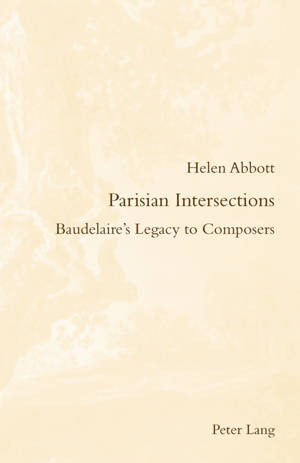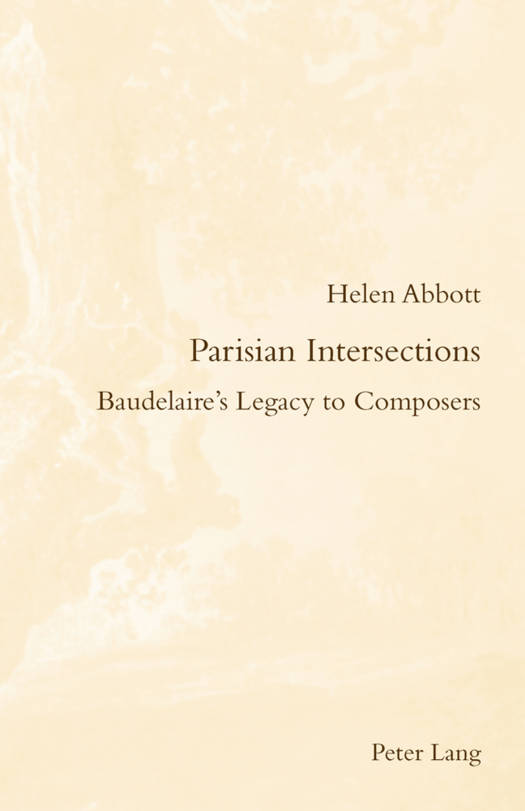
Bedankt voor het vertrouwen het afgelopen jaar! Om jou te bedanken bieden we GRATIS verzending (in België) aan op alles gedurende de hele maand januari.
- Afhalen na 1 uur in een winkel met voorraad
- Gratis thuislevering in België vanaf € 30
- Ruim aanbod met 7 miljoen producten
Bedankt voor het vertrouwen het afgelopen jaar! Om jou te bedanken bieden we GRATIS verzending (in België) aan op alles gedurende de hele maand januari.
- Afhalen na 1 uur in een winkel met voorraad
- Gratis thuislevering in België vanaf € 30
- Ruim aanbod met 7 miljoen producten
Zoeken
€ 77,95
+ 155 punten
Uitvoering
Omschrijving
The period from the 1850s to the 1890s in Paris marked a key turning point for poets and composers, as they grappled with the new ways in which poetry and music could intersect. Under the particular conditions of the time and place, both art forms underwent significant developments which challenged the status of each form. In both creative and critical work from this era, poets and composers offered tantalising but problematic insights into 'musical' poetry and 'poetic' music.
The central issue examined in this book is that of what happens to poetry when it encounters music, especially as song. The author places Baudelaire's famous sonnet 'La Mort des amants' at the heart of the analysis, tracing its transposition into song by a succession of both amateur and professional composers, examining works by Villiers de l'Isle-Adam, Serpette, Rollinat, Debussy and Charpentier, as well as an extraordinary parodic song version by Valade and Verlaine.
A companion website offers recordings of each of the songs analysed in this book.
The central issue examined in this book is that of what happens to poetry when it encounters music, especially as song. The author places Baudelaire's famous sonnet 'La Mort des amants' at the heart of the analysis, tracing its transposition into song by a succession of both amateur and professional composers, examining works by Villiers de l'Isle-Adam, Serpette, Rollinat, Debussy and Charpentier, as well as an extraordinary parodic song version by Valade and Verlaine.
A companion website offers recordings of each of the songs analysed in this book.
Specificaties
Betrokkenen
- Auteur(s):
- Uitgeverij:
Inhoud
- Aantal bladzijden:
- 218
- Taal:
- Engels
- Reeks:
- Reeksnummer:
- nr. 22
Eigenschappen
- Productcode (EAN):
- 9783034308052
- Verschijningsdatum:
- 13/06/2012
- Uitvoering:
- Paperback
- Formaat:
- Trade paperback (VS)
- Afmetingen:
- 142 mm x 218 mm
- Gewicht:
- 317 g

Alleen bij Standaard Boekhandel
+ 155 punten op je klantenkaart van Standaard Boekhandel
Beoordelingen
We publiceren alleen reviews die voldoen aan de voorwaarden voor reviews. Bekijk onze voorwaarden voor reviews.









